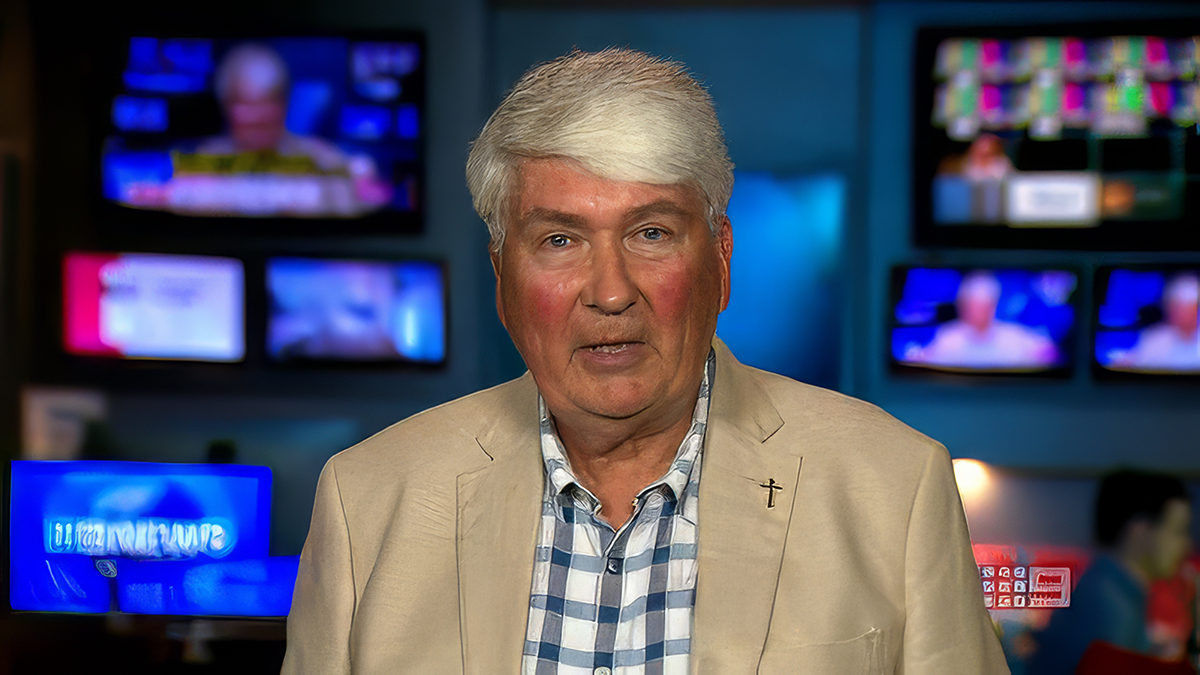I think Pope Francis will be remembered as a Pope who had a great pastoral touch.
He had a fond saying: He was sick of the church’s clericalism, where the clerics gave directions from on high, and people were expected to comply.
He said he wanted the clergy to smell like sheep and the church more like a field hospital.
Beyond Europe
So, I think he’ll be remembered as someone who saw the church as something much beyond Europe, as an institution that could reach out to the gross peripheries of our world and particularly touch and help the lives of the poorest and most marginalised.
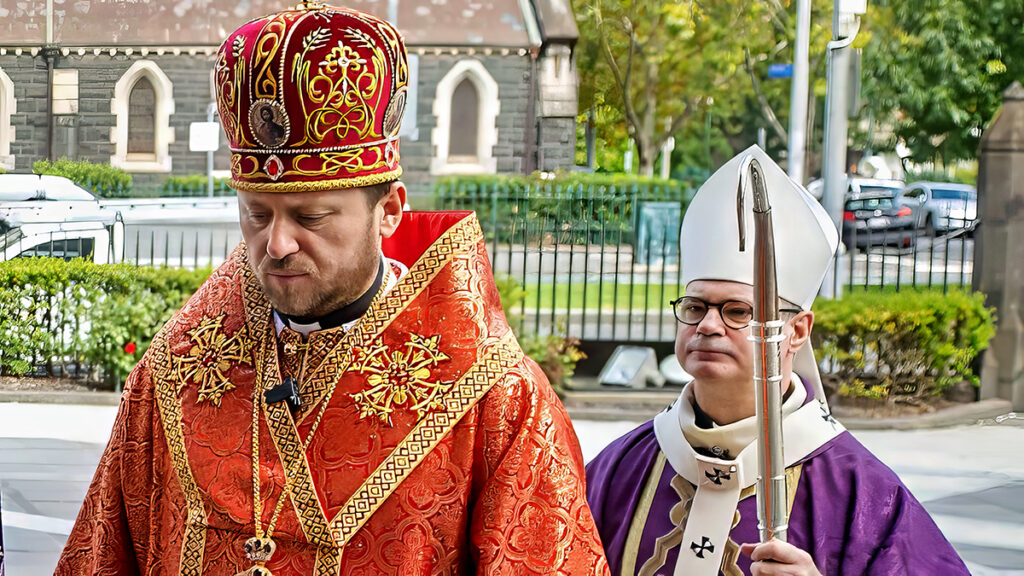
Universal representation
Over the last 24 hours, I have read many reports and eulogies about Pope Francis.
One number stuck out to me.
When he was chosen, 50 countries were represented.
The conclave that will choose the next Pope represents 90+ countries.
And it’s not only the plurality of countries.
For example, in Australia, the Archbishop of Sydney or the Archbishop of Melbourne was always made a cardinal.
This Pope had no interest in that.
He eventually appointed a 44-year-old redemptorist priest who worked with the Ukrainians as a cardinal in Australia, so we’re very proud to have him as an Australian cardinal.
But if you look around our immediate region, places like East Timor, Papua New Guinea, Tonga, and New Zealand all have cardinals.
He was very deliberately wanting to go to those peripheries.
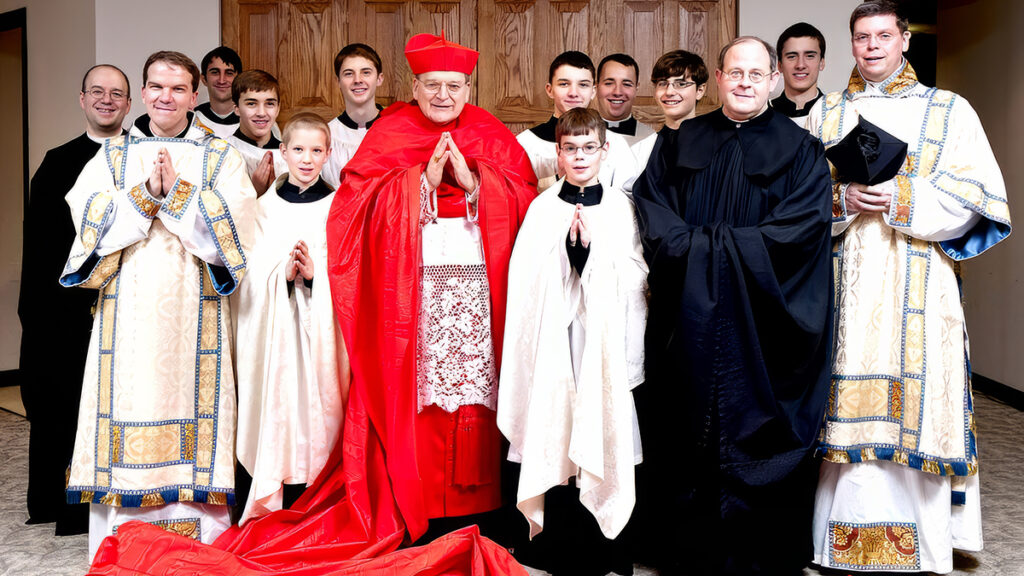
Critics and concerns
His critics, however, do have a case in saying that some of these cardinals did not have the same theological training in the great European or Western schools as other cardinals did in previous times.
So what’s the cardinal from Mongolia, for example, going to contribute at the conclave?
And I think this sort of mix has created something truly exciting.
For Catholics, we believe that that’s where the Holy Spirit does the work. So we’ll wait and see the result.
A more open Church
After 12 years as Pope Francis, we can say he led by example to what is now a more open Catholic Church.
He said, “Look, we want more openness and more transparency.”
Think, for example, of a few things that he changed.
In the past, a pope would visit overseas.
On the way home, he’d hold a press conference on the plane, but you’d have to give written questions.
This pope said, “I’m not interested in written questions. I’ll answer any question that comes along.”
So there he was on the plane one night on the way back from Brazil, and he’s asked about gay and lesbian rights, and he said, “Who am I to judge?”
Now, understandably, quite many conservative Catholic clerics asked, “What’s going on here?”
But his thing was he wanted a church that was open to anybody and everybody.
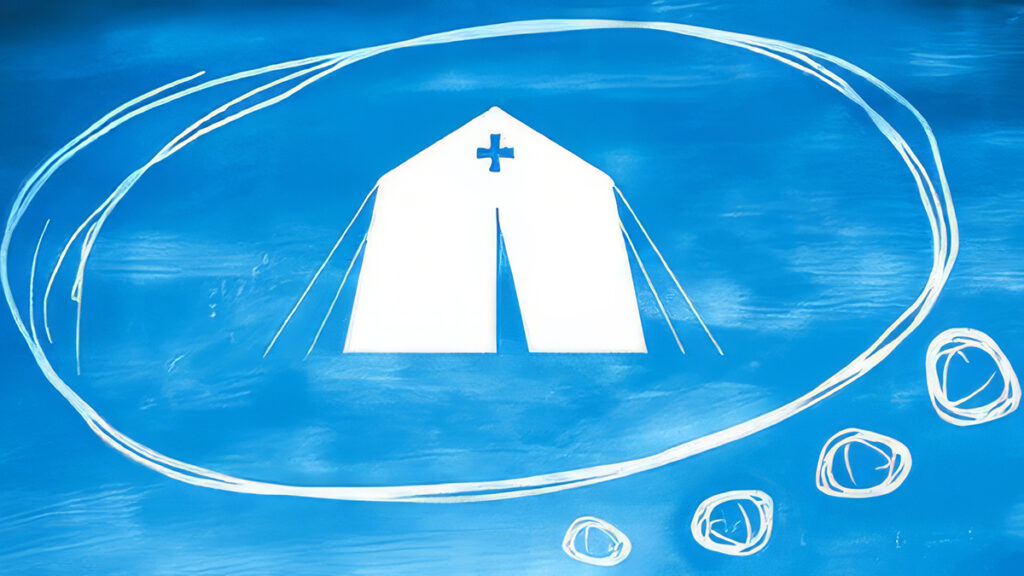
Church as a field hospital
As he said in a notable sermon, “We’re not the church of the pure, which would be simply a small remnant. We are the church of sinners.”
“We are open to everyone in the world. I want the church to be more like a field hospital, and I want you clergy out there with the smell of the sheep.”
So he wasn’t afraid to get his hands dirty.
As we saw, his first pastoral visit out of Rome was to the island of Lampedusa, where African asylum seekers were trying to reach landfall in Europe.
Now, he didn’t go there saying, “I’ve got the answers of some leftist agenda as to what should happen with migration or whatever.” Still, he did want to send a wake-up call to the European leaders, and people like Angela Merkel then tried to do the thinking about that.
Symbolic action
So, I think he saw himself as a church leader that could take symbolic action and call all people of goodwill to reflect on what was necessary in terms of justice, mercy, forgiveness, and reconciliation.
More conservative Catholics, including those who are very senior in the Vatican, have long held the view that the Church needs to be a firm teacher on issues of moral doctrine but also very pastoral, very forgiving, and very understanding.
But the unwritten code was that once you were something like an archbishop, cardinal, or pope, you spoke publicly about those rules that had to be followed, but you didn’t speak too publicly about the need for pastoral solicitude.
You did that privately, and that’s how the tension was held.
Public pastoral leadership
Francis came along and said, “Well, actually, I’m not all that interested in trying to develop doctrine or dogma. I’ll leave that as it is, but I want to be out there publicly announcing and demonstrating that we are committed to pastoral solicitude for everybody and anybody.”
Now, that caused great upset.
Synodality and change
He also caused upset when he instituted the idea of synodality.
Now, that’s a foreign term for those outside of Church circles.
Still, it was saying, “Look, the days of having a big meeting in Rome where you had several ranks of clerics with pointy hats, where those with the purple hat sat at the back, those with the red hat sat at the front, and those with the white hat sat at the podium.”
For Pope Francis, those days had gone.
We’ve got to be able to sit at a round table, and God forbid, we’d even have women at the round table, but that we would have laity generally at the round table, and that we would start to discern together.
Now, for many of the senior clerics in the Vatican, that was seen as unstable in terms of trying to maintain the inherent capacity of the Church to simply be a rock through the ages.
From his point of view, and it was his Jesuit training, what we need to be able to do is discern what the Spirit is asking of us, and we can only do that if we are attentive to everybody’s interests.
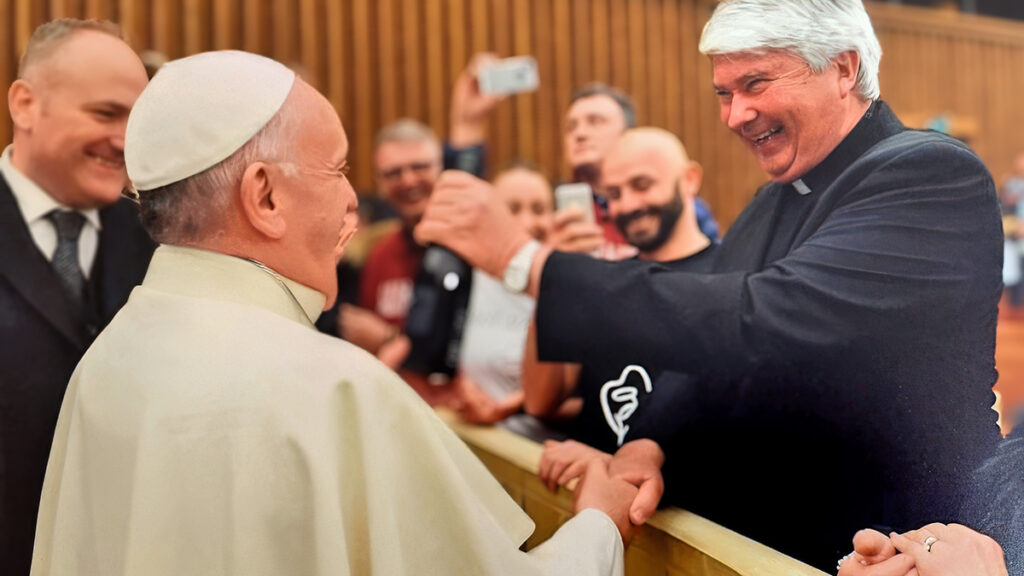
Meeting Pope Francis
I had the pleasure of meeting him a couple of times, and I saw his great personality.
The first time I met him, I took him a bottle of the Jesuit Seven Hill wine from Clare Valley in South Australia. He was delighted and said, “Ah, aqua sacra.”
There I was, surrounded by young married couples, and he said, “Aqua sacra, holy water.”
The next time I met him, I presented him with the book I wrote on the Indigenous voice because he spoke eloquently about Australia’s need to respect the rights of Indigenous peoples.
He was not for this idea of simply equating equality with sameness; we had to look to the aspirations of the Indigenous people.
On that occasion, as one of your photos shows, I was in the company of Miriam Rose Ungamur, a very fine Indigenous leader from the Northern Territory.
Well, there they both were, Miriam and the Pope in their wheelchairs, and there, with great humility and affection, they could greet each other.
It was a privilege for me to meet a Pope of this sort.
Very special indeed.
Hope
I don’t think we need to be too despondent or downhearted.
I think he got his way.
He died at Easter.
He wanted to give that Easter message, and he wanted to show that he incarnated that Easter message.
He believed in the resurrection and new life, and he wanted to put before the people. This is who I am.
I’m ready to shuffle off the mortal coil and think better things are ahead.
So may he rest in peace.
- Frank Brennan is a Jesuit priest, a professor of law and a leading commentator on Church and social and political issues.
- Flashes of Insight is an international publication. The editorial policy is that spelling reflects the country of origin.

